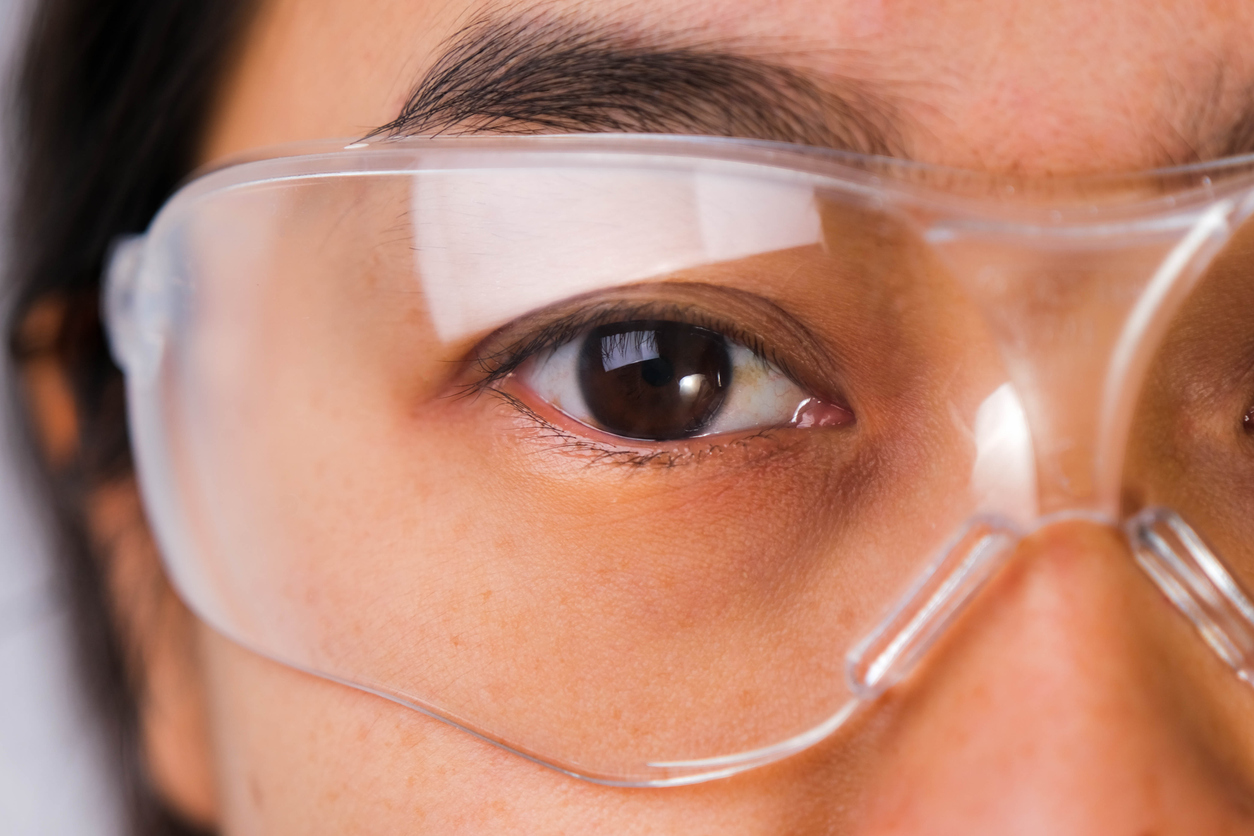Plastic vs Glass Lenses: Which Offers Better Safety?

Debating between plastic and glass lenses? Picking the right option can be confusing, so we made this guide to help you choose. Keep reading to learn more about the pros and cons of each material and get expert advice on the safest option.
Glass Lenses
Before plastic was invented, glass lenses were the standard design for hundreds of years. They worked well for many reasons, including clarity and scratch resistance. Glass lenses have less distortion than some plastic alternatives, giving you clearer peripheral vision. And despite being fragile, glass is naturally scratch-resistant — you’re far less likely to make visible scratches in glass lenses than in plastic.
Glass is also denser than plastic. This allows optometrists to create thinner prescription lenses out of glass, which you might prefer if you want eyeglasses with a slim appearance.
However, glass lenses have a lot of problems. First, they’re heavier than plastic. It’s not a huge difference, but the extra weight can get uncomfortable after a long day. Plus, heavier lenses can make frames slide down your nose, which is annoying and risky if you’re relying on glasses to protect your eyes.
But the main problem is bigger than that. Put simply: Glass can shatter, and you definitely don’t want broken glass anywhere near your eyes. Modern glass lenses are usually engineered for added durability, but they’re not always reliable. One wrong move can put you at risk of painful eye injuries or even vision loss.
Plastic Lenses
Given the safety issues with glass lenses, a lot of people turn to plastic.
First and foremost: Plastic won’t shatter like glass. In fact, plastic lenses are a lot more durable. Although they may scratch a little easier, many plastic lenses can withstand intense impact. And if they do break, they won’t shatter into a million pieces. Modern plastic lenses maintain their shape when cracked to prevent little shards from getting in your eyes.
When it comes to distortion, plastic lenses are known to make peripheral vision a little blurry. However, the difference isn’t very noticeable for most people, and the tradeoff is worth it since glass lenses can be so dangerous.
Plastic lenses are lighter, too. That means they’re usually more comfortable throughout the day, and they won’t make your frames slide out of place as easily.
Glass or Plastic Lenses for Safety Glasses
Ultimately, glass lenses simply aren’t safe in most situations. The threat of shattering is just too great.
So for safety glasses, the only real option is plastic. Safety glasses should be capable of deflecting debris like metal, rocks, and woodchips. Glass isn’t up for the job, but shatter-proof plastic is specifically made to block foreign objects and keep your eyes safe.
Remember: If your safety glasses have glass lenses, you’re not protected. Only wear safety glasses with plastic lenses built by certified, reliable manufacturers — like Ocusafe. All our safety glasses feature ANSI-approved plastic lenses for optimal protection.
Order Prescription Safety Glasses from Ocusafe™
Eye doctors founded Ocusafe to make custom safety glasses affordable for everyone. We’re dedicated to providing you with reliable eye protection, so we’re proud to only offer shatter-proof plastic lenses. Shop our catalog of safety-certified glasses and order a pair today for a great price!
